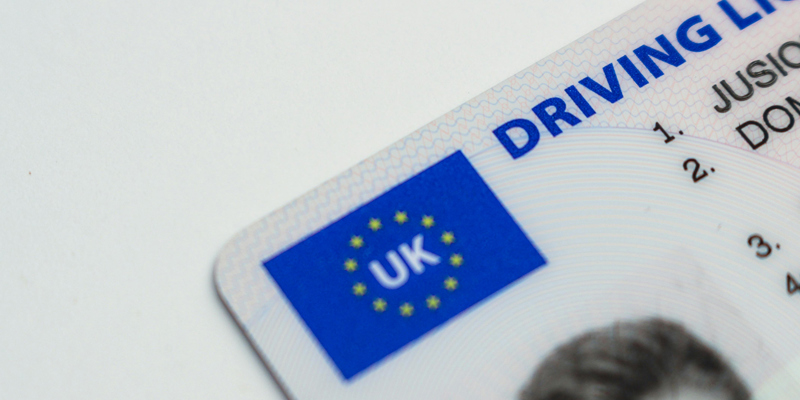
Analysis of new changes to the Immigration Rules
Following the introduction of amendments to UK Immigration Rules on 14 March 2024, Harry Qiu Yu Yu takes an indepth look at the wide-reaching implications of the changes for businesses and individuals.
On 14 March 2024, the Home Office laid proposed amendments to the UK Immigration Rules before Parliament (known as the Statement of Changes). Much of these changes reflect the Home Office’s 5-point-plan from December 2023 aimed at reducing net migration to the UK which we explored in our previous briefing. Now that the legislative wording has been revealed, we take a look at the finer details.
Raising the work visa salary threshold on 4 April 2024
The base salary threshold
As promised in the original 5-point-plan, the Home Office has raised the general salary threshold for work visas (specifically the Skilled Worker visa was increased from £26,200 to £38,700). For other work visas under the Global Business Mobility route, the general salary threshold has similarly been increased as follows:
|
Visa Route |
General salary threshold prior to 4 April 2024 |
General salary threshold on/after 4 April 2024 |
| Senior & Specialist Worker visa | £45,800 | £48,500 |
| Graduate Trainee | £24,220 | £25,410 |
| UK Expansion Worker visa | £45,800 | £48,500 |
| Scale-up visa | £34,600 | £36,300 |
Job specific salary thresholds
As many will be aware, Skilled Worker salary thresholds are also dependent on the 'going rates' (i.e. specific salary requirements for each type of job), which previously was based on the 25th percentile for job-specific salary levels based on the Office of National Statistics data. Starting from 4 April 2024, the going rates will be raised to the 50th percentile. For example, to sponsor an '1131 Financial Manager and Director' (e.g. investment banker), the current going rate is £42,800. From 4 April 2024, the going rate for the same job will be £70,000 (i.e. a 160% increase).
Reshuffle in types of jobs eligible for sponsorship
Besides changing the going rates, the Home Office has also changed the underlying system for categorising jobs from the Standard Occupational Classification (SOC) 2010 system to the 2020 system. Whilst this sounds like a technical change, it carries wide-reaching consequences. Certain jobs such as nannies, massage therapists, reflexologists, etc. are no longer eligible for sponsorship, unless that person was granted a Skilled Worker visa under the pre-4 April 2024 rules. Even if they benefit from this transitional provision, they must abide by stringent conditions such as having to be sponsored by the same employer (i.e. no switching jobs) amongst others. Reshuffling of the SOC codes will likely cause much confusion for workers and businesses alike, who will need to reconsider which codes to use for their workers’ next Skilled Worker visa application. This is especially worrying when choosing the wrong code could potentially result in sponsor licence revocation.
Complex formula for working out the salary threshold
Besides the general threshold, going rate, and job codes, the Home Office has also revamped the formula for working out the minimum salary requirement for Skilled Worker visas. Under the current rules, there are six options to choose from depending on if the worker has a PHD relevant to their job, if they have a PhD in a STEM subject, if their job is a shortage occupation, if they are a new entrant to the labour market, or if they work in health/education. From 4 April 2024, there will be 11 options to choose from, paired with nine different salary tables (each applies in different circumstances), and a myriad of transitional provisions. This is troubling considering that salary calculations under the existing Skilled Worker rules are already complex and adding an extra level complexity will likely confuse businesses, especially when getting these calculations wrong (much like the job codes) can result in sponsor licence revocation.
Below we provide high-level examples of how salary would be calculated under the new rules for two of the common industry sectors that we see. This generalisation does not seek to cover the finer details contained in the new rules.
Care Homes sponsoring senior care workers
Take for instance a care home operating in England sponsoring '6146 Senior Care Worker':
Under the current rules, this job would fall into Option D (shortage occupation). The going rate for this job is £14,880 (£7.63 per hour), whereas the minimum salary under option D is £20,960 (£10.75 per hour) and the higher of the two would apply.
If this senior care worker already holds a Skilled Worker visa prior to 4 April 2024, then all else being equal, the calculation for the new minimum salary for extension applications would work as follows:
- a new code '6136 Senior Care Workers' would apply under the SOC 2020 codes
- this code would qualify for a 'Health and Care ASHE Salary Job' subject to the care home meeting the regulatory provisions
- this code also falls under the new Immigration Salary List
- therefore option I would apply (general minimum salary requirement of £23,200 per year) and the going rates under table two would apply
- the going rate under table 2 is £23,200 (£11.90 per hour)
- as such, the minimum salary for an extension application is £23,200
In this particular scenario, the minimum salary requirement for sponsoring new 6136 Senior Care Workers would be the same.
Fintech Company sponsoring programmers
Take for instance a Fintech start-up sponsoring a 2136 Programmer and software development professionals.
Under the current rules, all else being equal, the calculation would fall into option A and the higher going rate of £34,000 (£17.44 per hour) would apply.
If this programmer already holds a Skilled Worker visa prior to 4 April 2024, then all else being equal, the calculation for the new minimum salary for extension applications would work as follows:
- a new code '2134 Programmers and Software Development Professionals' would likely apply under the new SOC 2020 codes
- all else being equal, if the extension application is made before 4 April 2030 and the programmer had continuous permission as a Skilled Worker, then option F (general minimum salary requirement of £29,000 per year) would apply
- table 2 going rates would apply in the case of option F, which is £36,300 (£18.62 per hour)
- the higher of the two (i.e. £36,300) would be the minimum salary requirement for extension applications.
In this particular scenario, to sponsor a new 2134 Programmers and Software Development Professional, then all else being equal:
- option A (general minimum salary requirement is £38,700) would apply as well as table 1 going rates
- table 1 going rates for 2134 is £49,400 (£25.33 per hour)
- the higher of the two (i.e. £49,400) would be the minimum salary requirement for new applications
It remains to be seen how businesses will navigate these ever complex/ever tightening rules and the increased cost of sponsorship, including how these changes will impact the wider UK economy.
What is the cut-off point for work visa salary increases?
In the coming weeks, many businesses and workers will no doubt be rushing to apply under the pre-4 April 2024 existing rules. Businesses will no doubt be aware that to sponsor a Skilled Worker, they must assign a Certificate of Sponsorship (CoS). There are different types of CoS and in many cases, the sponsor must apply to the Home Office for a CoS before they can issue the CoS to the applicant who would then use that CoS to apply for a Skilled Worker visa.
The Home Office’s position is that so long as the CoS is issued on or before 3 April 2024, the existing rules will apply. However, there are two main obstacles for businesses:
- there are substantial delays for CoS requests. Some CoS requests can take up to 18 weeks to process and even though there is priority service which brings the processing time down to 5 working days, it is extremely difficult to secure.
- the system through which businesses can assign a CoS (called the sponsor management system) will be unavailable from 7pm on 2 April 2024 (now changed to 7pm on 3 April 2024) to 4 April 2024 for IT maintenance, which means that if a sponsor is granted a CoS by the Home Office last minute, they may not be able to assign one in-time before the rules change.
Widening the definition of Supplementary Employment
One of the few positive changes to come out of the new rules is the widening of the definition of 'supplementary employment'. Skilled Worker visa holders are allowed in some cases to work other jobs for up to 20 hours per week, outside the hours for which they are contracted to work for their sponsor and they remain working for their sponsor. Under the current rules, this other job must either be a shortage occupation or the same profession/level as the job for which they are being sponsored for. The new rules allow Skilled Workers to (subject to the above conditions) work in almost any job which is eligible for sponsorship under the Skilled Worker visa.
This positive development will likely increase the number of part-time workers. However, with the ever-complex rules determining which jobs are eligible for sponsorship and which are not, it remains to be seen if businesses are willing to navigating this uncertainty when hiring an employee undertaking supplementary employment, especially when the civil penalties for employing an illegal worker can be up to £60,000 per illegal worker.
In addition to major changes for the work visa routes, the new Statement of Changes also has important effects on personal immigration. Below we address two of the most major ones:
Raising the financial requirement for spouse visas from 11 April 2024
As promised in the original 5-point-plan, the Home Office has also raised the financial requirement for spouse visas from £18,600 to £29,000 for gross annual income. This carries far reaching consequences British citizens, those who are settled in the UK, those who are on the EU Settlement Scheme and their foreign partners. For those who have no income (e.g. retired) and can only rely on savings to meet the financial requirement, this has a knock-on effect as well. Under the current rules, the savings threshold is £62,500 (maintained for six months). Under the post 11 April 2024 rules, the threshold increases to £88,500.
That being said, a positive development for the spouse visa route is that the current system of adding £3,800 for the first child and £2,400 for each additional child to the financial requirement is being abolished.
The spouse visa changes are due to kick-in for all applications submitted on or after 11 April 2024. For those who are already on the spouse visa, the rules for extending their visa / applying for ILR (so long as it is with the same partner) remain largely the same. In fact, the new changes would benefit these individuals if they have more than three non-UK/settled children. This is because the financial threshold for them would be capped at £29,000.
Changes to 10-year-ILR
The rules for 10-year-ILR remain largely unchanged (save for a few clarifications). However, the rules now require that for those applying for ten-year-ILR, if their current visa was granted after 11 April 2024, they must have “had permission on their current immigration route for at least 12 months on the date of application…” making it harder to qualify for 10-year-ILR, which is a popular immigration route especially amongst international students. For example, some who switched from the Student visa to the Graduate visa post 11 April 2024 would now need to wait for an additional 12 months before they can qualify for 10-year-ILR. This new requirement introduces a wave of uncertainties when it comes to those who are on section 3C leave (i.e. lawfully present in the UK by virtue of having a pending/in-time immigration application) or those who are extending their visas post-11 April 2024 in the same immigration route (e.g. student visa to student visa).
Note that this briefing only serves as a high-level overview of the Statement of Changes, which is over 300 pages including the explanatory memorandum and still subject to Parliamentary scrutiny (i.e. they still could be amended).
Harry Qiu Yu Yu is in the immigration team advising on the full range of private client and corporate immigration law advice, frequently handling complex immigration matters.
Get in touch
If you would like to speak with a member of the team you can contact our immigration law solicitors by email, by telephone on +44 (0)20 3826 7668 or complete our enquiry form below.



